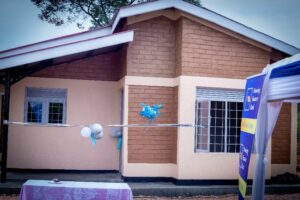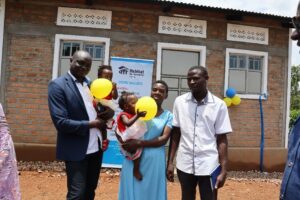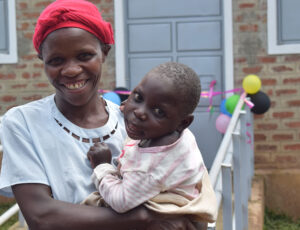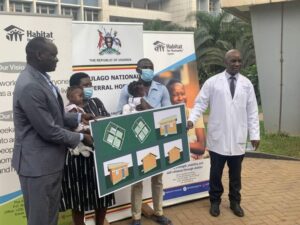Help us build safe, decent homes for vulnerable families in Uganda
Housing solutions to poverty in Uganda
Sign our petition
In 2025, Canada will host leaders of the world’s largest industrialized economies at the G7 Summit. Housing must be on the agenda.
Join us in urging G7 nations to take decisive action to improve the lives of the “invisible billion”.
SIGN HEREAdequate and affordable homes
We have built and improved over 40,000 houses - transforming the lives of over 240,000 vulnerable people.
At societal scale, the impact of these houses stretches from family members to neighbors, relatives and friends through shared amenities such as water and sanitation facilities.
At societal scale, the impact of these houses stretches from family members to neighbors, relatives and friends through shared amenities such as water and sanitation facilities.
Equitable basic services (WaSH)
The provision of equitable basic services such as Water, Sanitation and Hygiene (WASH), urban waste management and renewable energy housing solutions is central to community empowerment and system strengthening.
For every partner family receiving a house, a 3000-litre water tank and a complete set of water harvesting system is installed.
For every partner family receiving a house, a 3000-litre water tank and a complete set of water harvesting system is installed.
Our impact in figures
houses repaired, rehabilitated and build over the last 40 years
0
youth trained in various vocational skills in the last 10 years
0
caregivers equipped with life skills HIV/AIDS and Malaria prevention, WaSH best practices, and sexual reproductive health in the last three years.
0
Land tenure and governance
Security of tenure is an indispensable factor to the right to adequate housing.
To improve land tenure security for sustainable housing, we sensitize community members including women on land and property rights, support vulnerable partner family heads to write wills, and help them acquire land registration certificates.
To improve land tenure security for sustainable housing, we sensitize community members including women on land and property rights, support vulnerable partner family heads to write wills, and help them acquire land registration certificates.
Life skills & entrepreneurship
Market facing skills are an important component of Habitat Uganda’s people-centred approach and a key aspect of our strategy to tackle poverty in Uganda.
Skills are intended to build the resilience of families by empowering the caregivers and youths within vulnerable families to face stressors.
Coping strategies are developed through life skills training in health, psychosocial support and succession planning.
Skills are intended to build the resilience of families by empowering the caregivers and youths within vulnerable families to face stressors.
Coping strategies are developed through life skills training in health, psychosocial support and succession planning.
Education and emergency support
people reached through radio programs with WASH awareness information in the last three years.
0
Non-food items distributed to build resilience of the target families in 2023.
0
health and hygiene kits distributed as part of the COVID-19 and Ebola response - benefiting an estimated 31,000.
0
